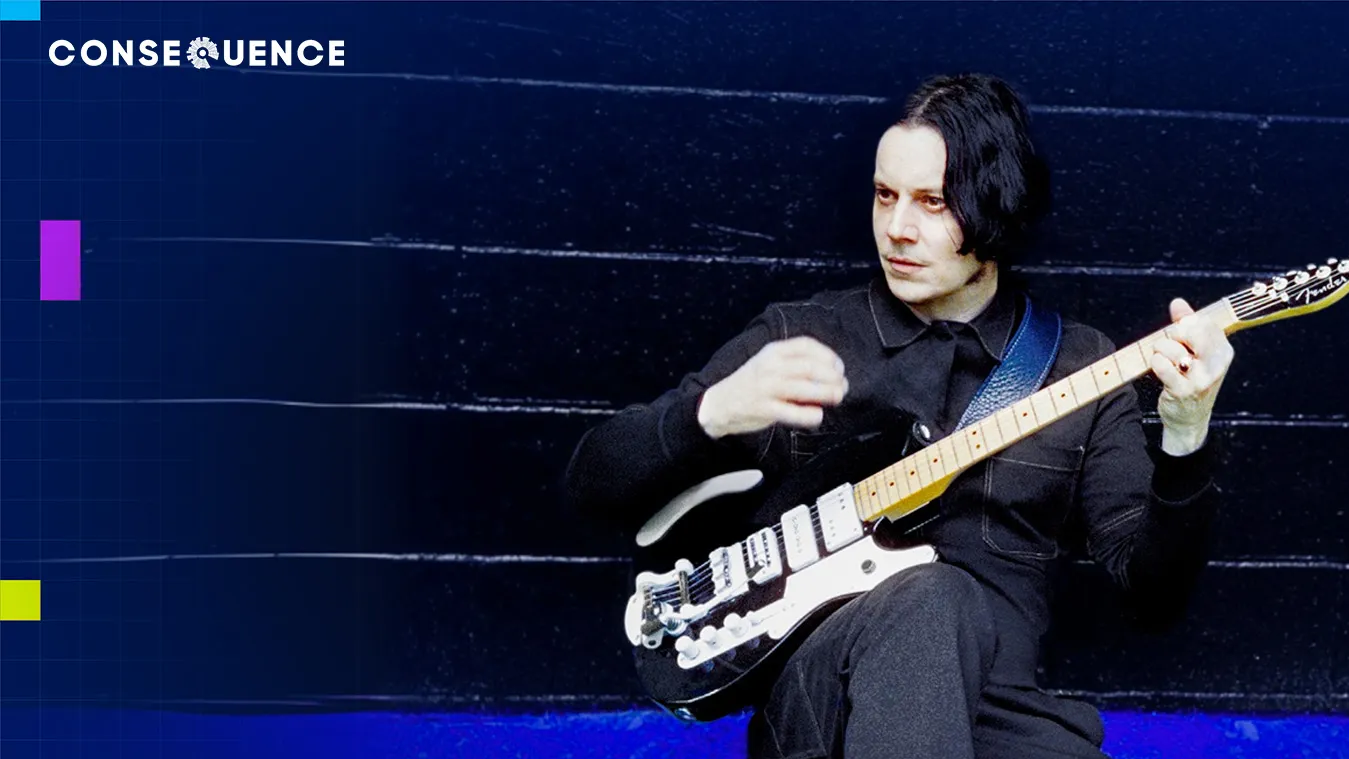According to White, he plotted an under-the-radar 2024 as a reaction to his hectic 2022. “Last time I went out, I did everything: two different-sounding albums, electric [Fear of the Dawn] and acoustic [Entering Heaven Alive], and played electric shows and acoustic shows. Did television and interviews and photo shoots and videos. Directed four videos myself.”
He pushed hard to promote those records, even dyeing his hair an eye-catching blue. Including his job at Third Man Records, the label he founded, “It was 10 years worth of work in a year-and-a-half’s time.”
As he wrote the tracks that became No Name, he set out on a different path. “Working on these songs this year, I just wanted the album to be dust on the cover, and for it to not have a name. That was the exact opposite of what I had just done.” But practical concerns got in the way. “I couldn’t not put a name on it, because then the album would have been eponymous,” he sighs.

Perhaps reasoning that the world already had enough White albums, “I had to call it No Name.” On July 19th, with no fanfare and zero notice, that record was dropped into the checkout bags of patrons of Third Man Records.
White had known for a while that he wanted a quiet release, “but Ben Blackwell at Third Man’s idea was to just give it away. And I thought about that for a minute.” As he so often does, he consulted history. “There’s things in the past, like Prince giving his record with a newspaper, and U2 putting the record on iPhones. We thought about it through that lens for a second.”
It turned out to be a fantastic marketing idea, though the PR success wasn’t just Blackwell and White; the strategy meant that people who go to brick-and-mortar Third Man Records stores were entrusted with No Name’s legacy.
White thinks that “a lot of great ideas die immediately because they won’t last 10 seconds in the realm of the internet.” But it’s different “if you put something for sale in our shop in Nashville that you can only get there, right?” And that’s just what happened: Superfans framed the discourse, so that as soon as anyone heard, “There’s a new, surprise Jack White album,” they also heard, “and it’s awesome!”
The setup created grassroots viral energy, a hard thing to come by in the algorithmic doldrums of 2024. In a year of pop breakouts, White sparked rare excitement for old-fashioned guitar, fueled by last-minute shows at intimate venues announced under the alias Johnny Guitar. When White’s social accounts announced he was rolling into town, group chats lit up and the phones of babysitters everywhere dinged. (A full-blown tour is coming next year.)
While provoked by overexposure, the concept of No Name fits into a career spent toying with biography. Ever the savvy marketer, White’s earliest interviews saw him smiling through conflicting stories about his real-life relationship with bandmate Meg White. Now in 2024, he expresses admiration for artists who’ve managed to stay even more anonymous.
“I’m loving acts like the Orville Pecks wearing masks, and Marshmello and the DJs, and the Daft Punks and the helmeted people: all the masked people. That’s great. Banksy, you know? Real strides in getting things down to be more about the art, and not paying so much attention to the person as a selling point.”
Marketing the personality is “very popular now, especially in pop music. You know, ‘This song’s about me, and this is the person I’m talking about,'” he adds.
“Coming up, I never wanted to speak to Lou Reed or expected him to be exactly like me. I wanted him to be in a different place talking about something else I haven’t experienced. I’m so glad there’s only a couple of photos of Robert Johnson and Blind Willie McTell. I don’t know anything about their world. We only know bits and pieces. How lucky for them. And how lucky for us that we don’t have to worry about all the nonsense. I don’t have some photograph of Robert Johnson in an embarrassing suit or something that makes us think twice about his music. And now it’s almost rebellious to write a song and it’s not about yourself. You know, that’s the new punk.”

To that end, his lyrics play with perspective and subvert expectations. No Name opens with the words, “Jackie said she warned you,” disorienting the listener and hurling them into conflict. Who is Jackie? What does she have to do with Jack? Like entering a theater at the start of Act Two, we can easily follow the emotional stakes without quite tracking the who-what-where.
With his lyrics, White prefers to keep some distance. “You have to decide how much you want to stand behind it, because you’re going to have to hear about this and that for the rest of your life,” he says. “Reminds me of how many times I’ve had to change the pronouns of a song just to shut people up. Like, ‘No, this isn’t a song about her. It’s not the fucking point.'”
And while he isn’t interested in removing his own masks, he’s philosophical about the role they’ve played in his life, transforming him from John Gillis to Jack White and now a new alter-ego, Johnny Guitar. White confirms he took the Johnny Guitar moniker for his No Name era from “a Country Western movie I watched.” He compares it to “the name Jack White: how simple that name is. [Johnny Guitar] is just another version of that.” He points out along similar lines that “Sturgill Simpson’s doing something now, too, Johnny Blue Skies, which is just very cool.”
Ultimately, White trusts his listeners to connect to the intention behind the words — perhaps even their truth — while the words themselves remain opaque.
Which is how we get on what White calls “the Sansui thing.”
